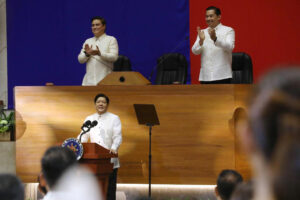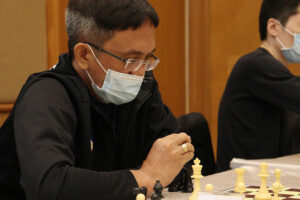Setting politics aside: Understanding the big picture of the President’s SONA

In his recent State of the Nation Address (SONA), President Ferdinand “Bongbong” Marcos, Jr. underscored his administration’s achievements, plans, and ongoing challenges. His speech presented a comprehensive picture of the nation’s current state and articulated a vision for a prosperous future. Beyond political rhetoric and heated debates about legislative issues, the speech highlighted key points that Filipinos should focus on: boosting economic performance, creating jobs, increasing investments in education and healthcare, and improving our security.
The President highlighted ongoing efforts to strengthen the economy, particularly focusing on the country’s journey to recovery in the wake of the COVID-19 pandemic and creating an environment conducive to further economic growth. He claimed that the Philippines is still among the fastest-growing economies in the world and that inflation is, “moving in the right direction” and “transforming the economy” by “stabilizing the prices of all the critical commodities.” He lauded the Philippines’ improved standing in global competitiveness rankings, new investments coming into the country, and the steady decline in unemployment rates. He also commended government agencies for their initiatives to alleviate poverty and bring development opportunities to rural areas.
It remains to be seen, however, whether these economic policies will have the desired long-term effects, especially given the nation’s current debt outlook.
President Marcos Jr. also shed light on the “Build Better More” program currently in progress, with 194 projects worth P8.3 trillion. The President noted that the program is not only about building roads and bridges, but also about economic efficiency, stability, and sustainability.
The President’s address touched on the need to improve access to quality education. He highlighted efforts to better equip our teachers and students with skills at par with international standards, stressing that these investments in education are key to unlocking innovation, enhancing productivity levels, and building human capital. He added that through improved cooperation between the government, private sector, labor, and academia, as well as ongoing reskilling and upskilling training initiatives, the problem of the mismatch between jobs and skills among Filipino workers is being addressed.
The President also emphasized the importance of a robust healthcare system, advocating for “healthier communities and lifestyles,” the need for timely and efficient vaccine distribution, addressing hunger and nutrition through feeding programs, and expanding the country’s medical and nursing education.
Despite an already ambitious agenda, President Marcos Jr. expressed further resolve to make progress on all these fronts by forging closer partnerships with other countries as “a friend to all and enemy of none.” He cited the importance of embarking on trips abroad to advance the interests of the nation, foster peace, and pursue constant dialogue and diplomatic approaches to protect the Philippines’ sovereign rights and preserve territorial integrity “in defense of the rules-based international order.”
The President touched on the Philippines’ fight against corruption, saying that his administration is determined to end this social ill by strengthening laws and implementing better systems of accountability through digital governance. He noted that it would be more efficient in terms of cost and time. He called for collective effort to ensure transparency, honest dealing, and strict adherence to the rule of law.
Four days after the SONA, the Stratbase ADR Institute, in partnership with Democracy Watch Philippines, conducted a virtual discussion to assess the recent SONA with experts. A Pulse Asia survey revealed that the majority of Filipinos believe that the government needs to do more to address corruption. In his opening remarks, Prof. Dindo Manhit, President of ADRi, said that curbing corruption will remain one of the biggest challenges of the current administration, on top of achieving a more stable policy environment and sustaining the gains of the past year.
President Marcos Jr.’s SONA was not just a mere recount of what has been accomplished, but it also raised what is yet to be done. We need to give credit where credit is due. This administration seems resolute about its goal to bring real progress and genuine transformation. Still, where exactly is President Marcos Jr. taking the nation given his statements?
The speech was a call to action for the whole nation. It was a rallying cry for Filipinos to come together, work towards a common goal, and build a better future for the country. It may be a testament to the President’s commitment to lead with conviction, accountability, and a deep sense of duty to the Filipino people. I remain cautiously optimistic that this commitment will translate into achievable outcomes in the next five years.
The way forward is clear: it’s time for us to move from mere ideas to tangible results. As citizens, it’s our responsibility to hold our government accountable for its actions, and to actively participate in decision-making processes and public discourse. We should not just be content with what is given to us; we must strive for more by furthering the conversation about the nation’s challenges and possible solutions, to stay unified in pursuit of this goal, and to look at the challenges ahead with a fresh perspective. We should set aside our personal politics to make way for a loftier goal: to focus on what is at hand, to understand the big picture, and to participate in nation-building.
Krystyna Dy is the deputy executive director of Programs and External Affairs of the Stratbase ADR Institute, and a co-convenor of Democracy Watch Philippines.




